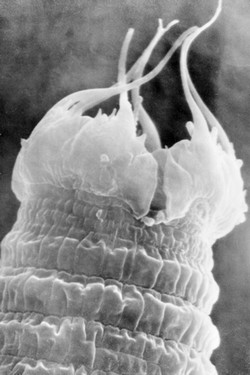It looks like you're using an Ad Blocker.
Please white-list or disable AboveTopSecret.com in your ad-blocking tool.
Thank you.
Some features of ATS will be disabled while you continue to use an ad-blocker.
6
share:

Loss of 'world's largest wetland' could tip ocean balance
In addition to being a sanctuary for somnolent microbes from the past, the polar glaciers are an important habitat for a large array of active bacterial communities making their homes in and under the ice. Some are psychrophiles, or cold-lovers, that flourish at near-freezing temperatures and die back as they heat up. Others tolerate the cold, but do best in a balmier climate.
John Priscu, a microbial ecologist at Montana State University, describes the vast watery areas beneath Antarctica as "the world's largest wetland." There are no red-winged blackbirds or cattails, he said, "but there's microbes that do biochemistry… And since it's dark biochemistry, they get their energy from minerals. So they eat rocks."
The organisms weather rocks by stripping out elements such as iron and sulfur, oxidizing them to utilize the energy released from broken chemical bonds, then spitting the transformed minerals back into the water. This process is important for regulating marine minerals and ions, and loss of subglacial wetlands could upset the oceans' delicate geochemical balance, he said.
The threat to the oceans is becoming increasingly critical as the polar ice melt accelerates. Recent NASA satellite measurements show that throughout the past two decades, the ice sheets in Greenland and Antarctica lost considerably more mass each year than they did the year before. Antarctica is now losing more than 24 cubic miles of ice every year – enough to cover every inch of Arizona in ice a foot deep. And measurements of Arctic sea ice by the National Snow and Ice Data Center show that the summer 2011 ice cover was close to its lowest since satellite tracking began in 1979.
"With all this melt, you're flushing all kinds of things into the oceans that we haven't seen before," said Christine Foreman, a Montana State University microbial ecologist who spent last summer studying bacteria in streams and lakes atop Greenland's thawing glaciers, another potential hot spot for microbial life. Foreman was amazed at the amount of slush and running water she saw on the ice sheet, possibly draining loads of organic matter into the nearby fjords and sea.
See also: Bugs in the ice sheets: Melting glaciers liberate ancient bacteria
Decide for yourself the whys... One thing is clear, however, the future will look very different from our recent past.
Interesting post, especially about the rock-eating organisms.
Russian s drilled down to ancient lake in antarctica
The Russians liberated some of this matter recently. I'm hoping we find out more about the ancient matter - in a safe, controlled environment.
Russian s drilled down to ancient lake in antarctica
The Russians liberated some of this matter recently. I'm hoping we find out more about the ancient matter - in a safe, controlled environment.
edit on 18-4-2012 by insideanalyst because: link
Originally posted by insideanalyst
Interesting post, especially about the rock-eating organisms.
Russian s drilled down to ancient lake in antarctica
The Russians liberated some of this matter recently. I'm hoping we find out more about the ancient matter - in a safe, controlled environment.edit on 18-4-2012 by insideanalyst because: link
I was following the Lake Vostok drilling with interest....
Your comment about the Russians made me think - what if TBTB actually wanted and funded these drillings to take place to ensure the release of the matter in order to mess up the oceans even further
new topics
-
Simple Thanksgiving
Food and Cooking: 1 hours ago -
Trump could make a peaceful American Revolution
US Political Madness: 4 hours ago -
Trump Presidential Transition Team will not use GSA or Government entities to come to DC
US Political Madness: 5 hours ago -
Mind Blowing Cave under someones land
Fragile Earth: 5 hours ago -
The Party of Peace - Trump Cabinet Picks Targeted with Death Threats
US Political Madness: 6 hours ago -
V.P. Kamala Harris releases a video and nobody understands why
US Political Madness: 9 hours ago
6
